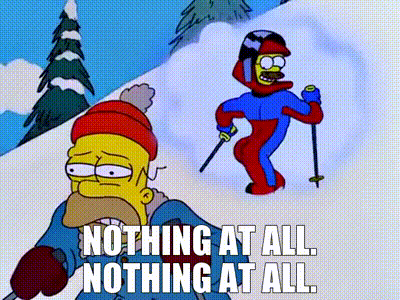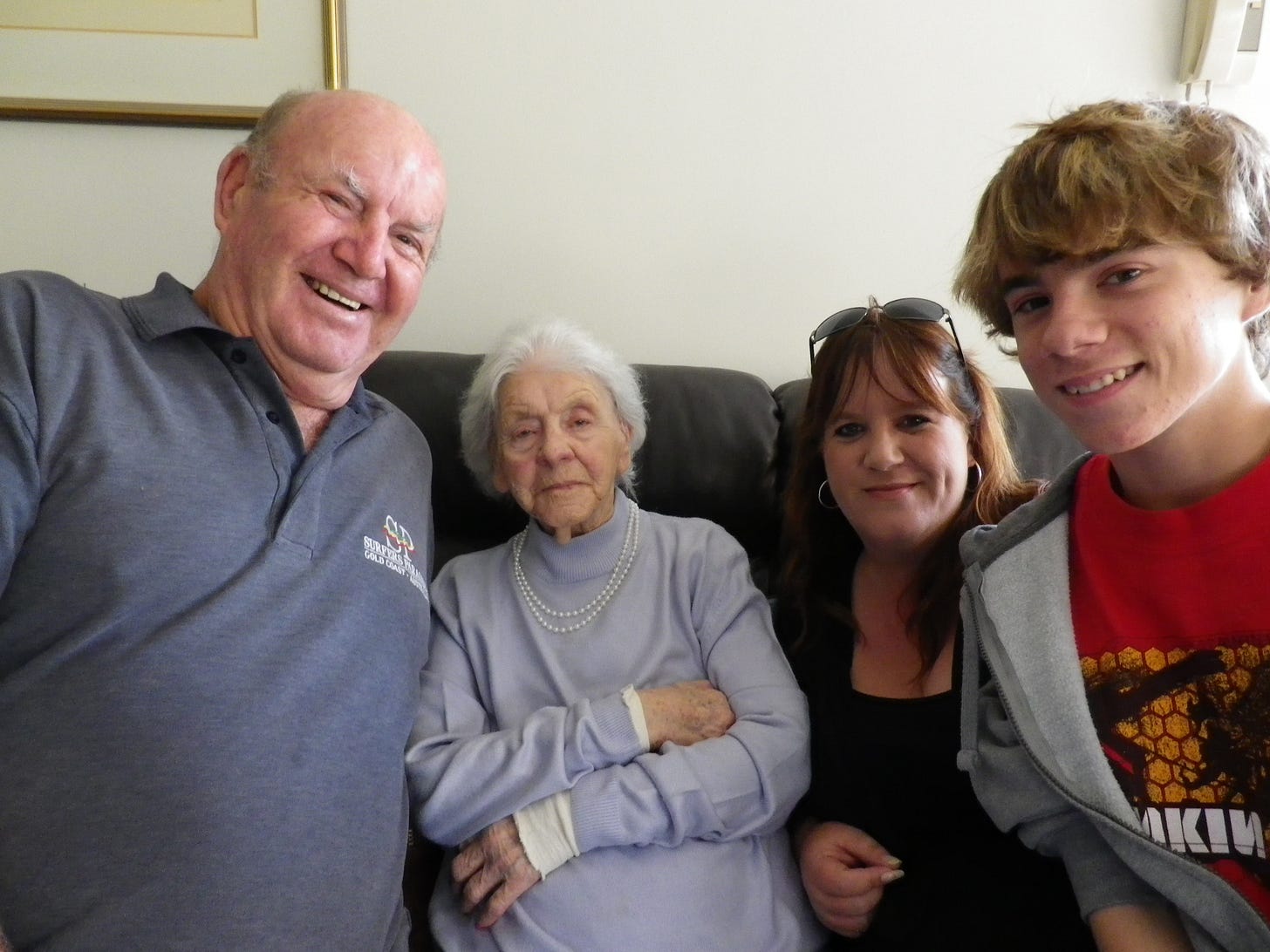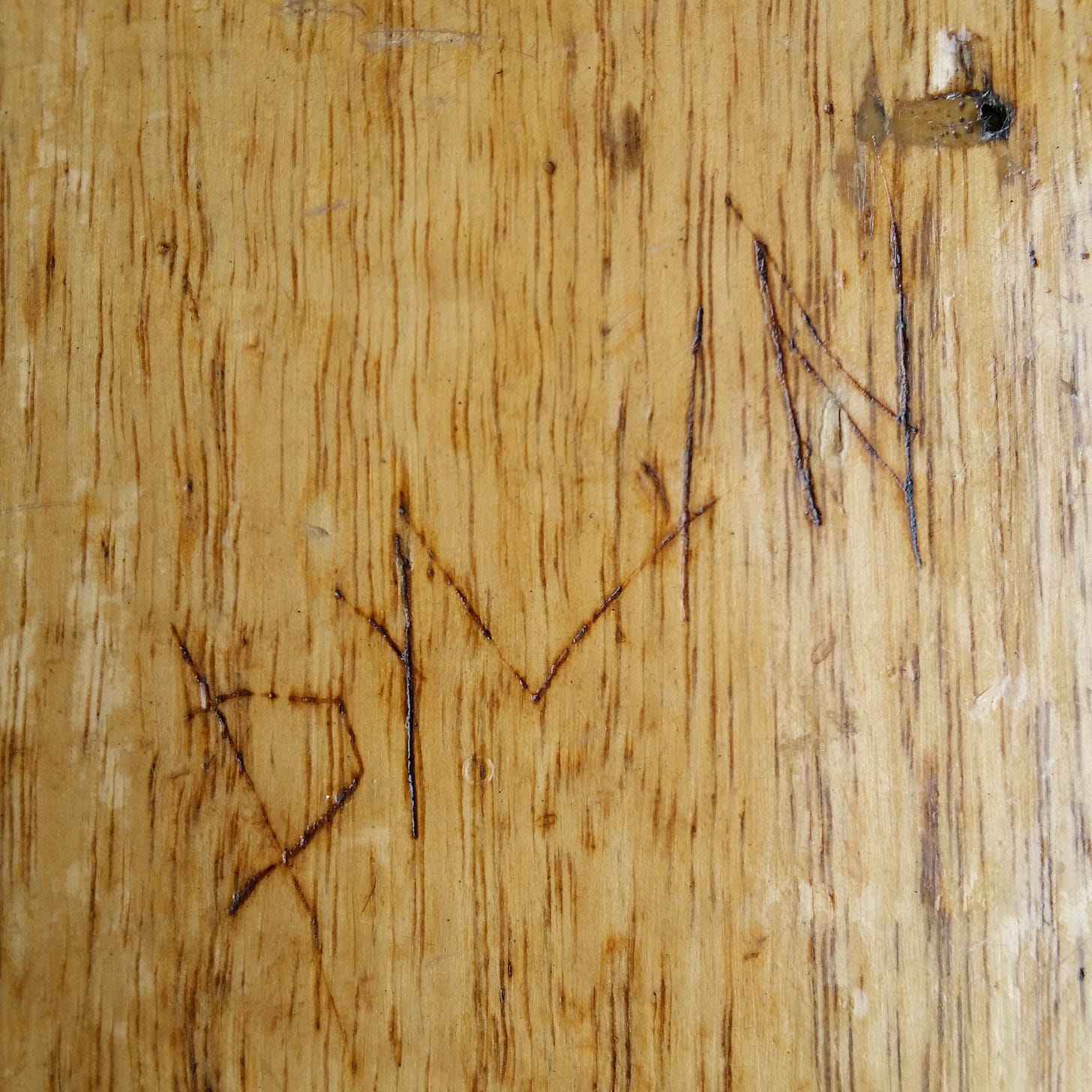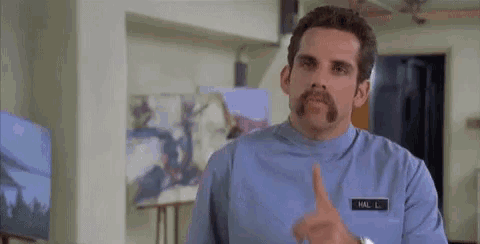Respect Your Elders (Before It’s Too Late)
Learn from your loved ones while they’re still around
I’ve been thinking a lot about my life lately, on a macro level, and it made me reflect on the lives of those who have come and gone before me. Do you ever contemplate that unfathomably large, vacant space ahead when you ponder the distant future? Just me? Well, this is the conclusion that I’ve reached from mulling it over these past few days.
There’s a vast stretch of emptiness in the timeline of my life between the ages of, say, 30 and 80 that I can’t seem to grasp. That’s a seemingly interminable 50 YEARS – just under double my time on Earth already – in which I can’t envision anything at all. When I try to imagine where I’ll be, whom I’ll be with, or what I’ll be doing, I draw a blank – and that’s quietly distressing. Will I be successful? Will I be lonely? Will I even still be alive? These are the kinds of questions that gnaw at my brain when I try to fall asleep at night.
It’s strange to think that I can only picture myself either a few years ahead of where I am currently, or being old and grey in a hospital bed. Obviously, the reason that I can’t foresee my future is (a) I’m not psychic, and (b) any number of things could happen between now and then. Life is, to a degree, unpredictable by nature, so why is that reality so hard to accept? I’ve mentioned before that I struggle with my own mortality and frequently suffer bouts of existential dread. But is this myopia really a fatal flaw? Or is it simply part of being human?
We complicated animals have been troubled by our own existence ever since we developed a conscience. Consider Shakespeare’s timeless tragedy Hamlet, in which the titular character gazes into the empty sockets of a human skull and ponders aloud, To be, or not to be, that is the question. Why, then, is it so uncomfortable to simply be? Is it the result of living within a rigid hierarchy for millennia? Or perhaps our endless plight of self-actualisation? Either way, we are taught that we must live up to our full potential or be rendered stagnant by society.
My great-grandmother on my father’s side was 106 years old when she passed away in 2006. I was only 9. She lived through an entire century and received a congratulatory letter from the Queen. I don’t remember much about her, except that she would unknowingly pile salt onto her food because she couldn’t see it coming out of the shaker. That would always make me laugh. Looking back, she was pretty cognisant and able-bodied for her age.
My great-grandmother on my mother’s side lived to 98 years old. I was 18. She would always give me a barley sugar, or Werther’s Original if she was feeling particularly generous, from the drawer of her dresser when I reluctantly visited with my grandfather. The smell of steamed vegetables hung in the air of the rest home and mute residents would stare at me from across the room. She would say funny things that would make me laugh, usually at her.
My great nans endured hardships – not only in comparison to the living conditions of future generations – to give their children and their children’s children a better life. They managed to stick around long enough to witness both World Wars and the dawn of smartphones. I may have taken my short time with them for granted while they were still alive, but I admire their modest determination in hindsight. There must have been a wealth of knowledge and experience between them that I was too young and naïve to enquire about.
I’m fortunate enough to still have both sets of grandparents, which I’ve found is uncommon among people my age. Some of my fondest childhood memories are of moments shared with them and I’m particularly close with my grandmothers. They live in Victoria, so I don’t get to see them nearly as often as I would like, but we catch up over the phone at least monthly. We discuss books, music, the weather, family and relationships, and they are very supportive of my work – except for when I carve it into their house. Sorry, Nan!
Talking with the elderly can be eye-opening albeit confronting for younger people. When approached considerately, there are things that both can learn from each other, even if they are decades apart. The elderly are generally willing to offer their wisdom – or two cents – to anybody who will listen, but often nobody is. People can be patronising without realising it, which may deter older folks. I see it all the time in my retail job, though I always try to treat all customers the same. What kind of experience would you want your grandparents to have?
In saying that, many elderly people are also dismissive of emerging trends and resistant to change. This is prevalent at my work as well, particularly being an electronics store, where there are those who don’t want anything to do with technology simply because they don’t understand it. I wonder how often we do the same thing in other areas of life, such as investing or voting? We’re not that different when you think about it. Besides, they were our age once and, if life treats us kindly, we’ll be in their position soon enough.
Of course, I understand that there are ethical discrepancies that come with the generation gap. We’ve all been at a family gathering where somebody has said something offensive or blatantly untrue. Oftentimes, we don’t have it in our hearts to challenge or correct them, or we do, and our well-meaning comments are blown out of proportion. This is partly forgivable, as there are contentious beliefs that were the norm ‘back in their day.’ But holding people accountable in a polite manner by educating them is also necessary for progression.
This post began by exploring my anxiety about the yawning vacuum of uncertainty that is the future. Sometimes it gets so overwhelming that it almost feels like it would be easier to just forget it all and, to quote Gavin Rossdale, drink life as it comes, straight no chaser. But therein lies the irony of worrying about what hasn’t happened: You can’t control what you have no influence over. This time next year, and the year after that, it will still be the endless now. We can only prepare for what might happen by positioning ourselves for good fortune.
When this confronting thought gets me down, I like to listen to songs with perspectives from the other side. One in particular that always forces me to recalibrate is “Neon Gravestones” by Twenty One Pilots. In the final verse, Tyler raps:
Find your grandparents or someone of age/
Pay some respects for the path that they paved/
To life, they were dedicated/
Now, that should be celebrated.
TOP are no strangers to voicing uncomfortable thoughts, but they’re also incredibly wholesome. The cover of their album Vessel even features the members’ grandfathers, tying in with the concept of this essay. Remember, these people in our lives have been around the block a few times, so it’s well worth our time to ask them just how they did it. As Tyler openly admits in “Neon Gravestones”, life can be hard and scary, taunting even. But that’s no reason to give it up, which is sadly glorified all too often in meme culture and Gen Z jargon.
There is much to learn from our not-so-distant relatives and, especially if you don’t have extended family, older people in general. The women in my family are some of the most resilient people I know, so I’m doing my best to appreciate them while they’re still here. Hearing the joy in their voices and seeing their eyes light up when they speak lovingly of us always brings a smile to my face. I’d love to share the same experience someday. While it’s impossible to know which act of our lives we are currently in, think of this as the catalyst.
I’ll leave you with some inspiring lines from one of my favourite poems, Do Not Go Gentle into That Good Night by Dylan Thomas, whom I believe I was named after:
Do not go gentle into that good night,
Old age should burn and rave at close of day;
Rage, rage against the dying of the light.







